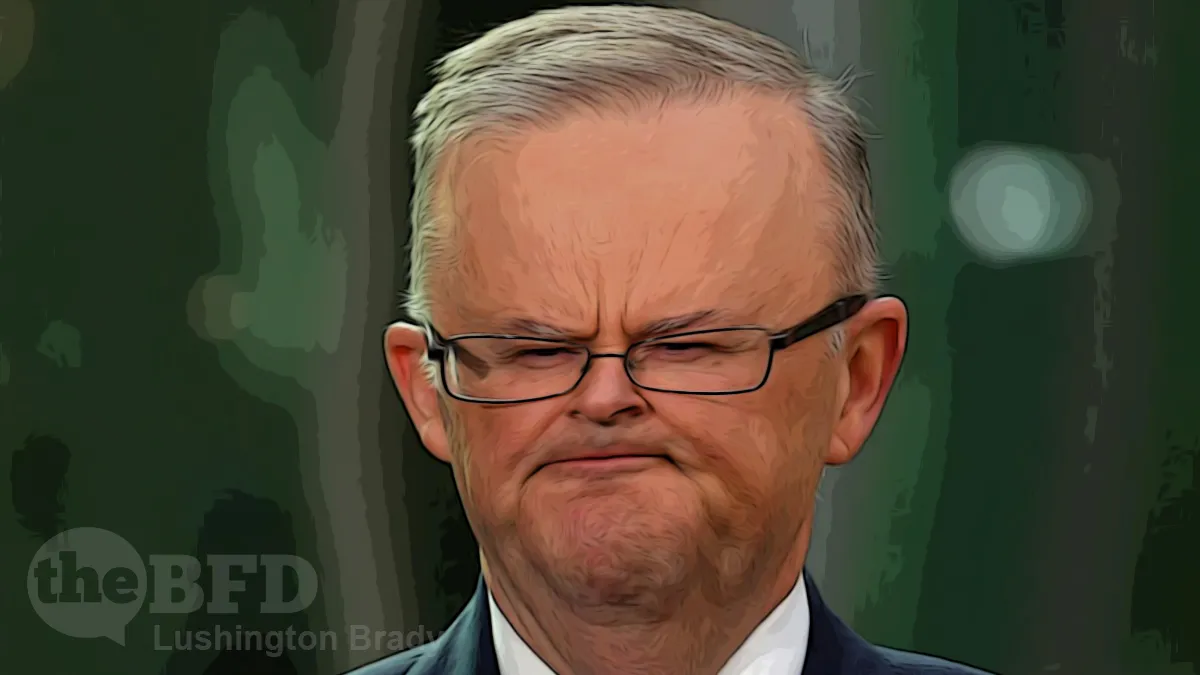Table of Contents
One of the harsher lessons of the last decade in Australian politics is that honeymoons are getting shorter and shorter. Most of the time, the end of the affair is self-inflicted by newly-minted leaders who think that the old rule of getting the dirty work sorted as soon as possible in order to give voters time to forget still holds.
For instance, Paul Keating’s “L-A-W-law” tax cuts. Or Julia Gillard promising, the day before the election, that, “there will be no carbon tax”, then immediately making a carbon tax the centrepiece of her minority deal with the Greens. Or Tony Abbott promising no cuts to pensions, then cutting pensions in his first budget. For Scott Morrison, it was the boneheaded decision to take an overseas holiday just as a bushfire crisis was bursting into flame.
All of those were unforced errors that cast in barely-cooled lava voters’ lasting perceptions of their respective governments. Perceptions that burned them badly at the next election.
Voters are in a less-forgiving mood than ever, so Anthony Albanese and new Treasurer Jim Chalmers are desperately trying to pre-emptively hose down the firestorm that’s about to engulf them. They’re trying another age-old tactic for a new government: “Oh, golly me, the books are much worse than we were lead to believe…”
Seeking to play down the prospect of Labor immediately fixing rising inflation, looming interest rate rises and the $1 trillion in government debt, Dr Chalmers said, “I want to be honest and upfront about it.
“It will take some time for us to turn around these big challenges,” he said on ABC Radio on Tuesday.
“I want to engage the Australian public in this big conversation about our national economic challenges.”
Labor campaigned on cost of living pressures during the election against the Morrison government. It pledged cheaper childcare, healthcare and clean energy.
Australian Financial Review
If Australians haven’t clicked already, they’re about to get a very harsh lesson in the inescapable truth that more “renewables” equals higher power bills.
After campaigning on lowering power bills longer term through boosted investment in renewable energy, Dr Chalmers said over coming months households should brace themselves for “a spike in power prices that will make it harder for Australian families to make ends meet”.
“The defining challenges in our economy are skyrocketing inflation, rising interest rates, falling real wages. We’ve got a full-blown cost-of-living crisis in this country and interest rate rises will add to the pain of that,” he said.
The Australian
So will spiralling power bills — and that’s exactly where the Albanese government is about to get a red hot rocket up its jacksie.
The default market offer – a price cap on what retailers can charge customers on standing offers – will rise by 8.5 per cent to 18.3 per cent for NSW residential consumers, figures which include Australia’s official forecast inflation rate of 5.5 per cent for 2021-22.
Customers in southeast Queensland will see annual increases of 11.3 per cent to 12.6 per cent while consumers in South Australia are in line for 7.2 per cent to 9.5 per cent hikes, the Australian Energy Regulator said.
Small business customers in NSW face a 10 per cent to 19.7 per cent lift with southeast Queensland up 12.8 per cent and South Australia edging 5.7 per cent higher.
Lest it sound like they’re getting off easy, remember that SA already has the highest power prices in the world.
Soaring prices have now landed the Albanese government with a fresh economic headache amid broader inflation, increasing interest rates and looming fears of a recession.
Wholesale prices have soared across the power market, although Victoria has seen a smaller jump than Queensland and NSW which have been harder hit by a lack of transmission and coal outages […]
The move follows just a week after thousands of households were slugged with a doubling of power prices as retailers passed on surging costs, sparking fears of small operators collapsing from volatile market conditions and fuelling predictions annual bills may jump by hundreds of dollars this year.
The Australian
Whether or not any of this is technically Albanese’s “fault” won’t matter. Any more than it mattered that technically, Scott Morrison was constitutionally powerless to actually do anything about the bushfire or floods crises.
Especially not with the teal tale wagging the government dog and demanding ever-more-insane policies on “green energy” that will only drive prices even higher.
But then, when you’re a ditzy heiress from the Northern Beaches of Sydney, paying the power bills has never been something you’ve had to worry about before, so why bother now? Just rattle your jewellery and think of the climate.









